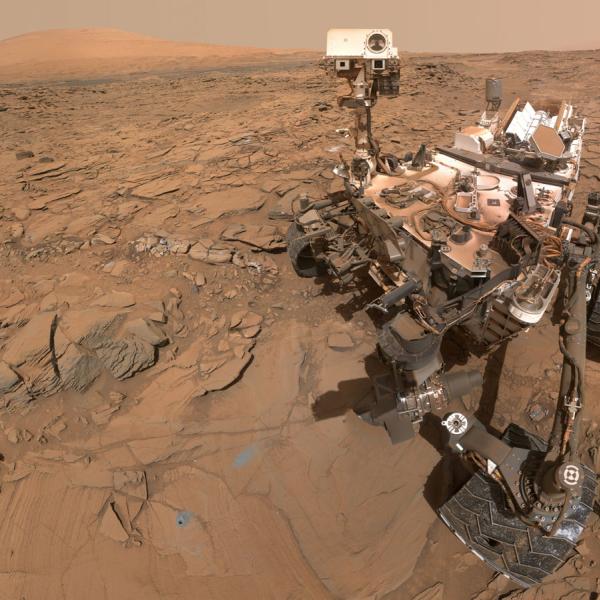Planetary Exploration and Habitability
Research addresses fundamental questions about the origin of the Solar System and the evolution of its planets and moons, including the investigation of potentially habitable environments in the past and present. Research projects and collaborations focus on exploration of the Moon via samples and remote sensing, exploration of Mars via rovers and orbiters, and exploration of ocean-world icy satellites, the Pluto-Charon system and Kuiper-belt objects. Experimental, analytical, and theoretical investigations include the chemistry and comparative planetology of Venus, Earth, and Mars, that of Europa and Enceladus, and the role of asteroids and comets in contributing to volatile contents of the terrestrial planets. How and why is our solar system different, and how special is the environment in which Earth has evolved to its present state?
Image credit: Curiosity rover on Mars, 2016 (Credit: NASA/JPL-Caltech/MSSS)
Ray Arvidson (Emeritus)
Planetary Geology and Remote Sensing
Alex Bradley
Organic and Isotope Geochemistry, Geobiology, and Microbiology
Paul Byrne
Comparative Planetary Geology
Jeff Catalano
Aqueous Geochemistry of Terrestrial and Planetary Systems
Bruce Fegley
Planetary Chemistry, Cosmochemistry
David Fike
Isotope Geochemistry
Brad Jolliff
Lunar and Planetary Sciences
Mike Krawczynski
Experimental Geochemistry, Igneous Petrology
Katharina Lodders
Astronomy, Cosmochemistry, Planetary Chemistry
Bill McKinnon
Outer Solar System Geology, Geophysics and Impact Cratering
Rita Parai
High-Temperature Isotope Geochemistry, Noble Gas Geochemistry
Phil Skemer
Experimental Rock Deformation, Structural Geology
Bill Smith
Climate Science, Remote Sensing, Medical Diagnostics for Space Missions
Slava Solomatov
Geodynamics, Planetary Evolution
Alian Wang
Planetary Spectroscopy
